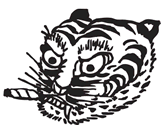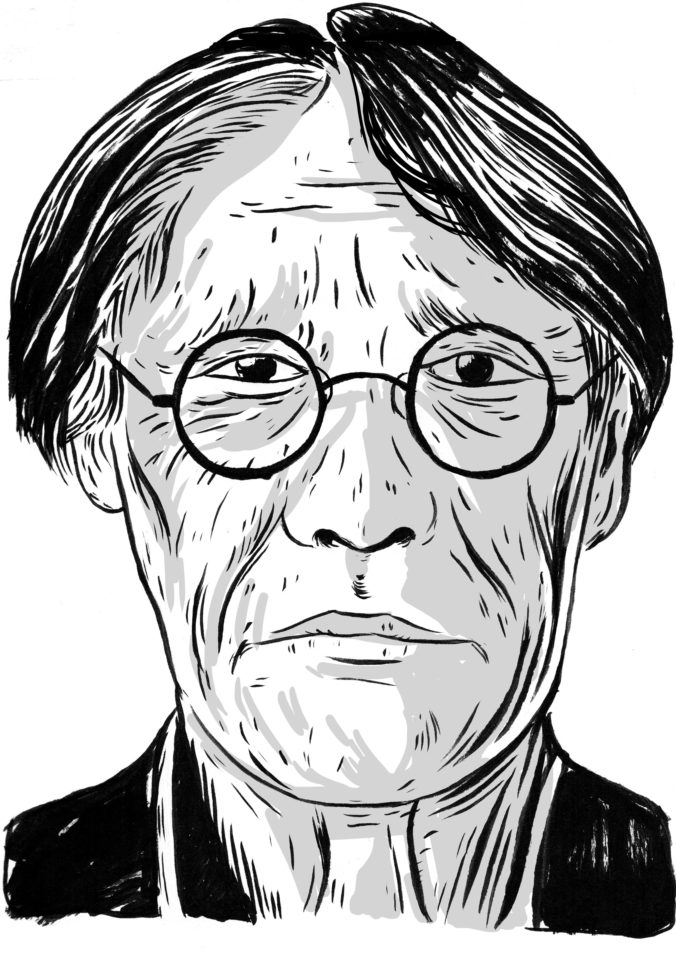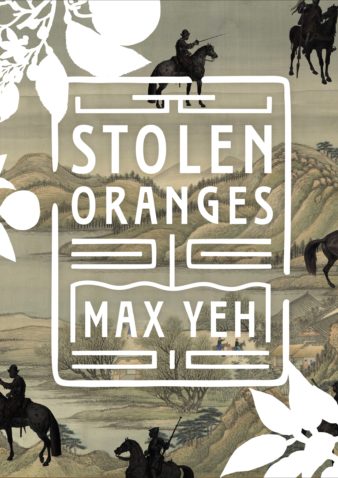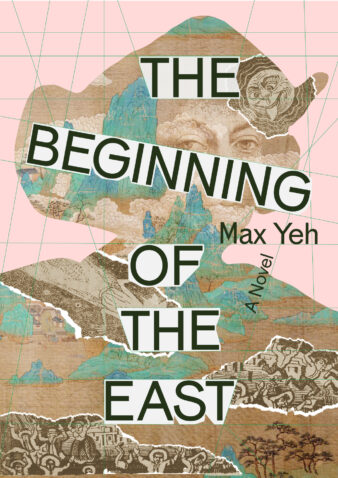Max Yeh
Max Yeh, described as “a writer on the rampage” by E.L. Doctorow, is the author of The Beginning of the East (FC2, 1992). He was born in China, educated in the United States and has lived in Europe and Mexico. He has taught at the University of California, Irvine, Hobart and William Smith Colleges, and New Mexico State University. He lives in the New Mexico mountains with his wife and daughter, where he works on a wide range of subjects including literary theory, linguistics, art history and science.
books
Stolen Oranges
A Chinese American historian discovers six anonymous documents in Spanish and Chinese in places ranging from the archives of Imperial China to a rare book shop in Mexico City and constructs a hitherto unknown correspondence between the Chinese Ming Emperor Wanli and Miguel Cervantes, author of Don Quixote. Difficulties in translation and the years-long, perilous voyages undertaken by conscripted letter couriers highlight the intensive labor and sheer serendipitous luck required to make this seemingly impossible 17th-century exchange possible. This reimagined history brings together the disparate histories of the Emperor, Cervantes, and the historian, united through time by their deep interest in literature, philosophy, politics, and the burden of demented mothers. As he did in his acclaimed previous novel, The Beginning of the East, Yeh continues to remap literary conventions. Layering documentary evidence, conflicting translations, and cultural contexts, Yeh sends ripples through the idea of historical fiction in the vein of Jorge Luis Borges and Italo Calvino. Described as “a writer on a rampage, with an appetite for history,” by E.L. Doctorow, Yeh’s Stolen Oranges reimagines the relationships of the past and the present.
The Beginning of the East
Made available again by Kaya Press for the first time in decades, Beginning of the East is an audacious high-wire grappling with the world-making powers of the literary imagination as filtered through experiences of an American scholar of Chinese descent and his attempt to map out the impact of Columbus’ “aberrations, delusions, and fantasies” on the brutality and political posturing of the American present—and thus on himself. Having already uprooted himself and his family from California to Mexico City, the narrator is even more radically unmoored when an earthquake forces him into an acute awareness of the physicality of experience. He begins to consider how such details help to render visible the motivations behind the construction and reconstruction of both self and culture. This dazzling tapestry of interconnected stories travels both east to a mythic Cathay and west to the New World, sliding between points of view and time periods ranging from fifteenth-century sailors to 1980s El Salvadoran prisoners of conscience to demonstrate what can be wrought by the imagination. “So there were many beginnings, for the explanation of America was also an explanation of the world to be [. . .] and all the beginnings coincided in Columbus.”
Ramblings in the West
In Ramblings in the West, the third of Max Yeh’s book-length “pseudo-fictions,” time and space collapse into a continuous, digressive stream where the giants of the past become everyday people. Lying on his couch while his back heals, the unnamed narrator imagines his life as a travel memoir in the mode of Herodotus, Montesquieu or Goldsmith. He does so through the repeated invocation of the long held Western tradition of using foreign visitors to bridge the East-West divide. These feats of perspectival dexterity make it possible for him to drive Jean-Jacques Rousseau from the Syracuse Airport and listen to Isaac Newton lecture on the laws of motion and chat with Charles Darwin as he tries to understand who and why he is. Elliptical and encyclopedic, Ramblings in the West blends travel memoir and dream journal to show how our lives carry the story of civilization itself.
praise
[Max Yeh is] a writer on a rampage” —E.L. Doctorow
“Yeh’s work helps us to pose some of the most pressing questions with respect to our history, culture, and literary canon. Did Don Quixote, which played at being the translation of an Arabic history, summon the specters of Spain’s oppressed Muslims or flippantly silence them? Does Yeh’s novel allow for a displacement of western storytelling by letting the Emperor’s perspective intrude upon it, or can he only romanticize an “Eastern” way of thought inevitably constructed as the other of the “West”? Who has the right or the power to impose a history, a language, an orthography, a calendar, a clock time, and all of the fabric on which what passes as shared experience becomes possible? Don Quixote and Stolen Oranges demonstrate the violence of these impositions and appropriations, while nonetheless reminding us that the sovereign fools himself, becomes a self-parody, if he thinks he can control this absolutely.” —Jonathan Basile, minor literature[s]
“Max Yeh has brought to light one of the most extraordinary cultural convergences in the history of humankind, reconstructing the miraculous epistolary correspondence between the Prince of Wits and the Ten-Thousand Calendars Emperor at the turn of the seventeenth century with a twenty-first century twist. In the process Yeh has plucked the sweet citrus of the Old and New Worlds, creating a translational space that uproots conventions and perceptions of East and West through the timelessness of storytelling—his pseudo-fictive madness akin to Sterne or Al-Mas‘udi or Spence’s Emperor of China or even the hallucinatory philosophical forays of Soviet outlier Krzhizhanovsky, though told in a nomadic style of his own soul-making, as he follows Christ among the Buddhists in Kashmir into the central kingdom before returning by way of a child’s baseball mitt.” —Jeffrey Yang, New Directions
Max Yeh news
Join us for a reading and conversation with four outstanding Chinese writers whose works upend the notion of a monolithic Chinese identity and uncover a much more complicated story about the diversity of Chinese diasporic experiences in America: 2017 National Book Award finalist Lisa Ko (The Leavers), crime-writer-turned-YA-author Ed Lin (David Tung Can’t Have a […]
If you’re in the American Southwest, be sure to join Max Yeh at Bookworks in Albuquerque (NM), as he reads from his whirlwind work Stolen Oranges: Letters Between Cervantes and the Emperor of China, a Pseudo-Fiction. Stolen Oranges journeys to locations ranging from the archives of Imperial China to a rare book shop in Mexico […]
2019 Asian American Literature Festival https://smithsonianapa.org/lit/lit2019/ August 2-4, 2019 at Eaton DC, Library of Congress, and Smithsonian Freer/Sackler Galleries free to the public Kaya Press will host 2 awesome panels: Kaya Healing Circle on Toxic Masculinity on Saturday, August 3, at 5:30 PM-6:30 PM Transnational Narratives, featuring Mimi Lok, Max Yeh + Alice Stephens, moderated […]
In Max Yeh’s new novel, Stolen Oranges, a Chinese American historian discovers six anonymous documents in places ranging from the archives of Imperial China to a rare book shop in Mexico City. From these texts, written in Spanish and Chinese, he constructs a hitherto unknown correspondence between the Chinese Ming Emperor Wanli and Miguel Cervantes, author of Don Quixote. […]



